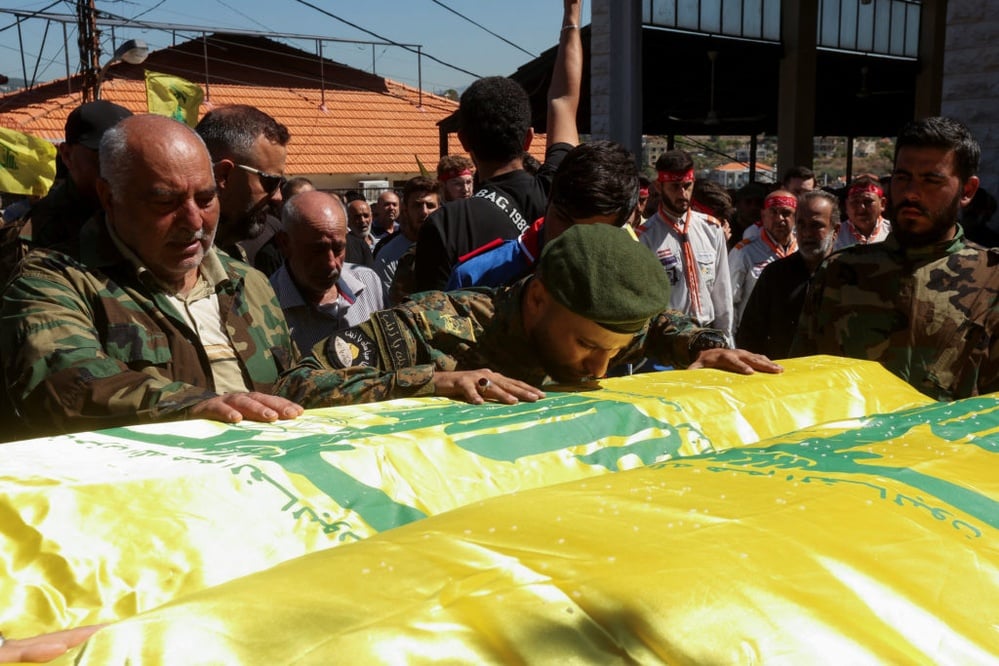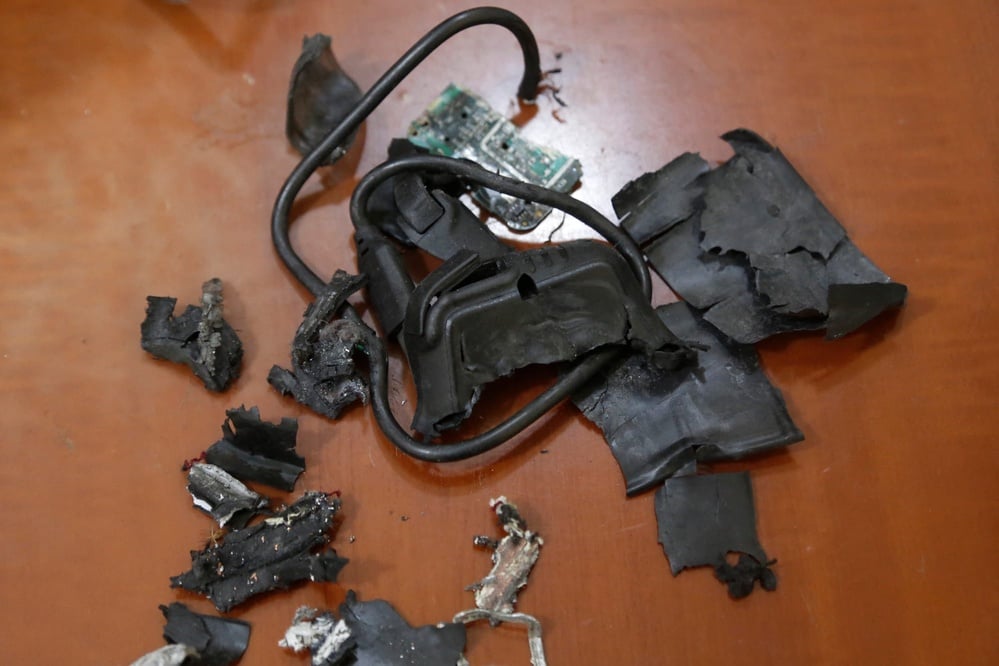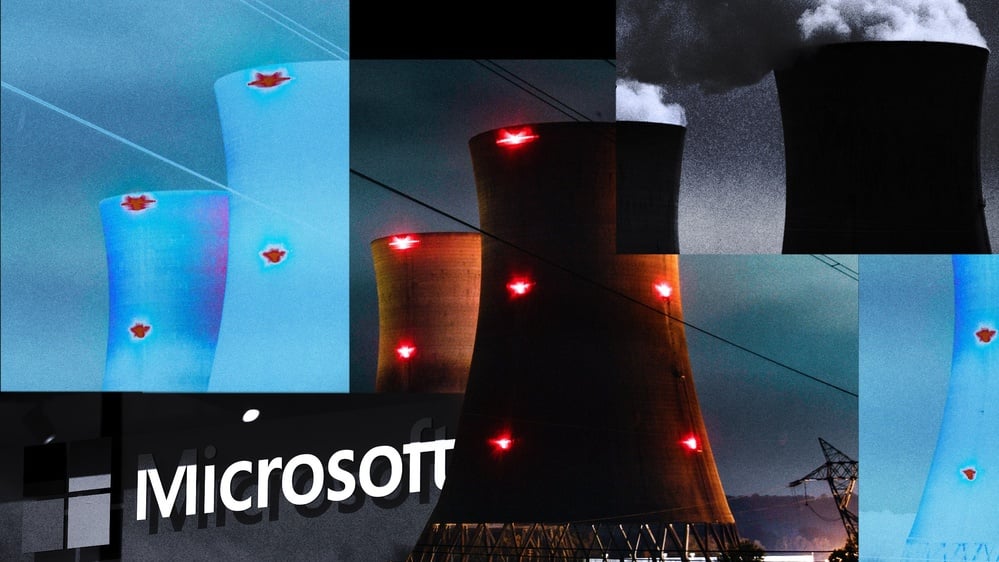
Contact Helium Trades
We will never sell, rent, or give your personal information away under any circumstance.

Article Bias: The article presents a straightforward report on Netanyahu's rejection of a cease-fire proposal amid ongoing conflict, focusing on the implications of continued fighting and highlighting statements from U.S. officials, which provides a neutral overview but does not delve into the perspectives or stakes of the involved parties.
Social Shares: 5
🔵 Liberal <-> Conservative 🔴:
🗽 Libertarian <-> Authoritarian 🚔:
🗞️ Objective <-> Subjective 👁️ :
🚨 Sensational:
📉 Bearish <-> Bullish 📈:
📝 Prescriptive:
🕊️ Dovish <-> Hawkish 🦁:
😨 Fearful:
📞 Begging the Question:
🗣️ Gossip:
💭 Opinion:
🗳 Political:
Oversimplification:
🏛️ Appeal to Authority:
🍼 Immature:
🔄 Circular Reasoning:
👀 Covering Responses:
😢 Victimization:
😤 Overconfident:
🗑️ Spam:
✊ Ideological:
🏴 Anti-establishment <-> Pro-establishment 📺:
🙁 Negative <-> Positive 🙂:
📏📏 Double Standard:
❌ Uncredible <-> Credible ✅:
🧠 Rational <-> Irrational 🤪:
🤑 Advertising:
🤖 Written by AI:
AI Bias: Neutral perspective based on factual reporting.
Article Bias: The article outlines Israeli Prime Minister Netanyahu's commitment to continue military actions against Hezbollah despite calls for a ceasefire from the U.S. and allies, reflecting on the complex political dynamics at play, including internal pressures on Netanyahu and Hezbollah's response to Israeli military actions, but it does not deeply delve into the humanitarian aspects or the implications of ongoing conflict.
Social Shares: 51
🔵 Liberal <-> Conservative 🔴:
🗽 Libertarian <-> Authoritarian 🚔:
🗞️ Objective <-> Subjective 👁️ :
🚨 Sensational:
📉 Bearish <-> Bullish 📈:
📝 Prescriptive:
🕊️ Dovish <-> Hawkish 🦁:
😨 Fearful:
📞 Begging the Question:
🗣️ Gossip:
💭 Opinion:
🗳 Political:
Oversimplification:
🏛️ Appeal to Authority:
🍼 Immature:
🔄 Circular Reasoning:
👀 Covering Responses:
😢 Victimization:
😤 Overconfident:
🗑️ Spam:
✊ Ideological:
🏴 Anti-establishment <-> Pro-establishment 📺:
🙁 Negative <-> Positive 🙂:
📏📏 Double Standard:
❌ Uncredible <-> Credible ✅:
🧠 Rational <-> Irrational 🤪:
🤑 Advertising:
🤖 Written by AI:
AI Bias: Balanced training data, but with potential narrative framing.
Article Bias: The article presents a critical perspective on Israel's military actions in Lebanon, emphasizing the humanitarian impact and the role of U.S. support, while highlighting concerns about the escalation of conflict in the region.
Social Shares: 99
🔵 Liberal <-> Conservative 🔴:
🗽 Libertarian <-> Authoritarian 🚔:
🗞️ Objective <-> Subjective 👁️ :
🚨 Sensational:
📉 Bearish <-> Bullish 📈:
📝 Prescriptive:
🕊️ Dovish <-> Hawkish 🦁:
😨 Fearful:
📞 Begging the Question:
🗣️ Gossip:
💭 Opinion:
🗳 Political:
Oversimplification:
🏛️ Appeal to Authority:
🍼 Immature:
🔄 Circular Reasoning:
👀 Covering Responses:
😢 Victimization:
😤 Overconfident:
🗑️ Spam:
✊ Ideological:
🏴 Anti-establishment <-> Pro-establishment 📺:
🙁 Negative <-> Positive 🙂:
📏📏 Double Standard:
❌ Uncredible <-> Credible ✅:
🧠 Rational <-> Irrational 🤪:
🤑 Advertising:
👤 Individualist <-> Collectivist 👥:
🎲 Speculation:
🤖 Written by AI:
AI Bias: Limited by training; data may reflect prevalent narratives.
Article Bias: The article presents a straightforward report on Netanyahu's rejection of a cease-fire proposal amid ongoing conflict, focusing on the implications of continued fighting and highlighting statements from U.S. officials, which provides a neutral overview but does not delve into the perspectives or stakes of the involved parties.
Social Shares: 5
🔵 Liberal <-> Conservative 🔴:
🗽 Libertarian <-> Authoritarian 🚔:
🗞️ Objective <-> Subjective 👁️ :
🚨 Sensational:
📉 Bearish <-> Bullish 📈:
📝 Prescriptive:
🕊️ Dovish <-> Hawkish 🦁:
😨 Fearful:
📞 Begging the Question:
🗣️ Gossip:
💭 Opinion:
🗳 Political:
Oversimplification:
🏛️ Appeal to Authority:
🍼 Immature:
🔄 Circular Reasoning:
👀 Covering Responses:
😢 Victimization:
😤 Overconfident:
🗑️ Spam:
✊ Ideological:
🏴 Anti-establishment <-> Pro-establishment 📺:
🙁 Negative <-> Positive 🙂:
📏📏 Double Standard:
❌ Uncredible <-> Credible ✅:
🧠 Rational <-> Irrational 🤪:
🤑 Advertising:
🤖 Written by AI:
AI Bias: Neutral perspective based on factual reporting.
Article Bias: The article outlines Israeli Prime Minister Netanyahu's commitment to continue military actions against Hezbollah despite calls for a ceasefire from the U.S. and allies, reflecting on the complex political dynamics at play, including internal pressures on Netanyahu and Hezbollah's response to Israeli military actions, but it does not deeply delve into the humanitarian aspects or the implications of ongoing conflict.
Social Shares: 51
🔵 Liberal <-> Conservative 🔴:
🗽 Libertarian <-> Authoritarian 🚔:
🗞️ Objective <-> Subjective 👁️ :
🚨 Sensational:
📉 Bearish <-> Bullish 📈:
📝 Prescriptive:
🕊️ Dovish <-> Hawkish 🦁:
😨 Fearful:
📞 Begging the Question:
🗣️ Gossip:
💭 Opinion:
🗳 Political:
Oversimplification:
🏛️ Appeal to Authority:
🍼 Immature:
🔄 Circular Reasoning:
👀 Covering Responses:
😢 Victimization:
😤 Overconfident:
🗑️ Spam:
✊ Ideological:
🏴 Anti-establishment <-> Pro-establishment 📺:
🙁 Negative <-> Positive 🙂:
📏📏 Double Standard:
❌ Uncredible <-> Credible ✅:
🧠 Rational <-> Irrational 🤪:
🤑 Advertising:
🤖 Written by AI:
AI Bias: Balanced training data, but with potential narrative framing.
Article Bias: The article outlines Israeli Prime Minister Netanyahu's commitment to continue military actions against Hezbollah despite calls for a ceasefire from the U.S. and allies, reflecting on the complex political dynamics at play, including internal pressures on Netanyahu and Hezbollah's response to Israeli military actions, but it does not deeply delve into the humanitarian aspects or the implications of ongoing conflict.
Social Shares: 51
🔵 Liberal <-> Conservative 🔴:
🗽 Libertarian <-> Authoritarian 🚔:
🗞️ Objective <-> Subjective 👁️ :
🚨 Sensational:
📉 Bearish <-> Bullish 📈:
📝 Prescriptive:
🕊️ Dovish <-> Hawkish 🦁:
😨 Fearful:
📞 Begging the Question:
🗣️ Gossip:
💭 Opinion:
🗳 Political:
Oversimplification:
🏛️ Appeal to Authority:
🍼 Immature:
🔄 Circular Reasoning:
👀 Covering Responses:
😢 Victimization:
😤 Overconfident:
🗑️ Spam:
✊ Ideological:
🏴 Anti-establishment <-> Pro-establishment 📺:
🙁 Negative <-> Positive 🙂:
📏📏 Double Standard:
❌ Uncredible <-> Credible ✅:
🧠 Rational <-> Irrational 🤪:
🤑 Advertising:
🤖 Written by AI:
AI Bias: Balanced training data, but with potential narrative framing.
Article Bias: The article presents a critical perspective on Israel's military actions in Lebanon, emphasizing the humanitarian impact and the role of U.S. support, while highlighting concerns about the escalation of conflict in the region.
Social Shares: 99
🔵 Liberal <-> Conservative 🔴:
🗽 Libertarian <-> Authoritarian 🚔:
🗞️ Objective <-> Subjective 👁️ :
🚨 Sensational:
📉 Bearish <-> Bullish 📈:
📝 Prescriptive:
🕊️ Dovish <-> Hawkish 🦁:
😨 Fearful:
📞 Begging the Question:
🗣️ Gossip:
💭 Opinion:
🗳 Political:
Oversimplification:
🏛️ Appeal to Authority:
🍼 Immature:
🔄 Circular Reasoning:
👀 Covering Responses:
😢 Victimization:
😤 Overconfident:
🗑️ Spam:
✊ Ideological:
🏴 Anti-establishment <-> Pro-establishment 📺:
🙁 Negative <-> Positive 🙂:
📏📏 Double Standard:
❌ Uncredible <-> Credible ✅:
🧠 Rational <-> Irrational 🤪:
🤑 Advertising:
👤 Individualist <-> Collectivist 👥:
🎲 Speculation:
🤖 Written by AI:
AI Bias: Limited by training; data may reflect prevalent narratives.
Israeli Government
Article Bias: The article presents a tense situation regarding increased military operations in the Middle East, focusing on Netanyahu's warnings and U.S. troop movements, but lacks diverse perspectives, leaning towards a narrative that may support military intervention.
Social Shares: 83
🗽 Libertarian <-> Authoritarian 🚔:
🗞️ Objective <-> Subjective 👁️ :
📝 Prescriptive:
🕊️ Dovish <-> Hawkish 🦁:
😨 Fearful:
💭 Opinion:
🗳 Political:
Oversimplification:
🏛️ Appeal to Authority:
🏴 Anti-establishment <-> Pro-establishment 📺:
🙁 Negative <-> Positive 🙂:
❌ Uncredible <-> Credible ✅:
AI Bias: Strive for neutrality but may reflect slight emphasis on stability and security.
Article Bias: The article presents a straightforward report on Netanyahu's rejection of a cease-fire proposal amid ongoing conflict, focusing on the implications of continued fighting and highlighting statements from U.S. officials, which provides a neutral overview but does not delve into the perspectives or stakes of the involved parties.
Social Shares: 5
🔵 Liberal <-> Conservative 🔴:
🗽 Libertarian <-> Authoritarian 🚔:
🗞️ Objective <-> Subjective 👁️ :
🚨 Sensational:
📉 Bearish <-> Bullish 📈:
📝 Prescriptive:
🕊️ Dovish <-> Hawkish 🦁:
😨 Fearful:
📞 Begging the Question:
🗣️ Gossip:
💭 Opinion:
🗳 Political:
Oversimplification:
🏛️ Appeal to Authority:
🍼 Immature:
🔄 Circular Reasoning:
👀 Covering Responses:
😢 Victimization:
😤 Overconfident:
🗑️ Spam:
✊ Ideological:
🏴 Anti-establishment <-> Pro-establishment 📺:
🙁 Negative <-> Positive 🙂:
📏📏 Double Standard:
❌ Uncredible <-> Credible ✅:
🧠 Rational <-> Irrational 🤪:
🤑 Advertising:
🤖 Written by AI:
AI Bias: Neutral perspective based on factual reporting.
Hezbollah and Lebanese Authorities
Article Bias: The article presents a critical perspective on Israel's military actions in Lebanon, emphasizing the humanitarian impact and the role of U.S. support, while highlighting concerns about the escalation of conflict in the region.
Social Shares: 99
🔵 Liberal <-> Conservative 🔴:
🗽 Libertarian <-> Authoritarian 🚔:
🗞️ Objective <-> Subjective 👁️ :
🚨 Sensational:
📉 Bearish <-> Bullish 📈:
📝 Prescriptive:
🕊️ Dovish <-> Hawkish 🦁:
😨 Fearful:
📞 Begging the Question:
🗣️ Gossip:
💭 Opinion:
🗳 Political:
Oversimplification:
🏛️ Appeal to Authority:
🍼 Immature:
🔄 Circular Reasoning:
👀 Covering Responses:
😢 Victimization:
😤 Overconfident:
🗑️ Spam:
✊ Ideological:
🏴 Anti-establishment <-> Pro-establishment 📺:
🙁 Negative <-> Positive 🙂:
📏📏 Double Standard:
❌ Uncredible <-> Credible ✅:
🧠 Rational <-> Irrational 🤪:
🤑 Advertising:
👤 Individualist <-> Collectivist 👥:
🎲 Speculation:
🤖 Written by AI:
AI Bias: Limited by training; data may reflect prevalent narratives.
Article Bias: The article presents a pro-Israel perspective, emphasizing the threat posed by Hezbollah while detailing the Israeli response and urging Lebanese civilians to leave affected areas, but lacks depth on the impact on civilians and the overall situation in Lebanon.
Social Shares: 77
🔵 Liberal <-> Conservative 🔴:
🗽 Libertarian <-> Authoritarian 🚔:
🗞️ Objective <-> Subjective 👁️ :
🚨 Sensational:
📉 Bearish <-> Bullish 📈:
📝 Prescriptive:
🕊️ Dovish <-> Hawkish 🦁:
😨 Fearful:
📞 Begging the Question:
🗣️ Gossip:
💭 Opinion:
🗳 Political:
Oversimplification:
🏛️ Appeal to Authority:
🍼 Immature:
🔄 Circular Reasoning:
👀 Covering Responses:
😢 Victimization:
😤 Overconfident:
🗑️ Spam:
✊ Ideological:
🏴 Anti-establishment <-> Pro-establishment 📺:
🙁 Negative <-> Positive 🙂:
📏📏 Double Standard:
❌ Uncredible <-> Credible ✅:
🧠 Rational <-> Irrational 🤪:
🤑 Advertising:
🤖 Written by AI:
AI Bias: Neutral stance, but lean towards objectivity based on training.
International Community
Article Bias: The article presents a strongly negative view of the Biden-Harris administration regarding its foreign policy towards Israel, framing it as hypocritical and biased in favor of Ukraine at the expense of Israel, which suggests a clear partisan bias.
Social Shares: 0
🔵 Liberal <-> Conservative 🔴:
🗞️ Objective <-> Subjective 👁️ :
🚨 Sensational:
📝 Prescriptive:
💭 Opinion:
🗳 Political:
Oversimplification:
✊ Ideological:
🏴 Anti-establishment <-> Pro-establishment 📺:
🙁 Negative <-> Positive 🙂:
📏📏 Double Standard:
❌ Uncredible <-> Credible ✅:
🧠 Rational <-> Irrational 🤪:
🐍 Manipulative:
AI Bias: Neutrality might be affected by language usage and framing.
Article Bias: The article outlines Israeli Prime Minister Netanyahu's commitment to continue military actions against Hezbollah despite calls for a ceasefire from the U.S. and allies, reflecting on the complex political dynamics at play, including internal pressures on Netanyahu and Hezbollah's response to Israeli military actions, but it does not deeply delve into the humanitarian aspects or the implications of ongoing conflict.
Social Shares: 51
🔵 Liberal <-> Conservative 🔴:
🗽 Libertarian <-> Authoritarian 🚔:
🗞️ Objective <-> Subjective 👁️ :
🚨 Sensational:
📉 Bearish <-> Bullish 📈:
📝 Prescriptive:
🕊️ Dovish <-> Hawkish 🦁:
😨 Fearful:
📞 Begging the Question:
🗣️ Gossip:
💭 Opinion:
🗳 Political:
Oversimplification:
🏛️ Appeal to Authority:
🍼 Immature:
🔄 Circular Reasoning:
👀 Covering Responses:
😢 Victimization:
😤 Overconfident:
🗑️ Spam:
✊ Ideological:
🏴 Anti-establishment <-> Pro-establishment 📺:
🙁 Negative <-> Positive 🙂:
📏📏 Double Standard:
❌ Uncredible <-> Credible ✅:
🧠 Rational <-> Irrational 🤪:
🤑 Advertising:
🤖 Written by AI:
AI Bias: Balanced training data, but with potential narrative framing.
My Bias
Article Bias: The article presents a pro-Israel perspective, emphasizing the threat posed by Hezbollah while detailing the Israeli response and urging Lebanese civilians to leave affected areas, but lacks depth on the impact on civilians and the overall situation in Lebanon.
Social Shares: 77
🔵 Liberal <-> Conservative 🔴:
🗽 Libertarian <-> Authoritarian 🚔:
🗞️ Objective <-> Subjective 👁️ :
🚨 Sensational:
📉 Bearish <-> Bullish 📈:
📝 Prescriptive:
🕊️ Dovish <-> Hawkish 🦁:
😨 Fearful:
📞 Begging the Question:
🗣️ Gossip:
💭 Opinion:
🗳 Political:
Oversimplification:
🏛️ Appeal to Authority:
🍼 Immature:
🔄 Circular Reasoning:
👀 Covering Responses:
😢 Victimization:
😤 Overconfident:
🗑️ Spam:
✊ Ideological:
🏴 Anti-establishment <-> Pro-establishment 📺:
🙁 Negative <-> Positive 🙂:
📏📏 Double Standard:
❌ Uncredible <-> Credible ✅:
🧠 Rational <-> Irrational 🤪:
🤑 Advertising:
🤖 Written by AI:
AI Bias: Neutral stance, but lean towards objectivity based on training.
Article Bias: The article presents a critical perspective on Israel's military actions in Lebanon, emphasizing the humanitarian impact and the role of U.S. support, while highlighting concerns about the escalation of conflict in the region.
Social Shares: 99
🔵 Liberal <-> Conservative 🔴:
🗽 Libertarian <-> Authoritarian 🚔:
🗞️ Objective <-> Subjective 👁️ :
🚨 Sensational:
📉 Bearish <-> Bullish 📈:
📝 Prescriptive:
🕊️ Dovish <-> Hawkish 🦁:
😨 Fearful:
📞 Begging the Question:
🗣️ Gossip:
💭 Opinion:
🗳 Political:
Oversimplification:
🏛️ Appeal to Authority:
🍼 Immature:
🔄 Circular Reasoning:
👀 Covering Responses:
😢 Victimization:
😤 Overconfident:
🗑️ Spam:
✊ Ideological:
🏴 Anti-establishment <-> Pro-establishment 📺:
🙁 Negative <-> Positive 🙂:
📏📏 Double Standard:
❌ Uncredible <-> Credible ✅:
🧠 Rational <-> Irrational 🤪:
🤑 Advertising:
👤 Individualist <-> Collectivist 👥:
🎲 Speculation:
🤖 Written by AI:
AI Bias: Limited by training; data may reflect prevalent narratives.
Article Bias: The article presents a straightforward report on Netanyahu's rejection of a cease-fire proposal amid ongoing conflict, focusing on the implications of continued fighting and highlighting statements from U.S. officials, which provides a neutral overview but does not delve into the perspectives or stakes of the involved parties.
Social Shares: 5
🔵 Liberal <-> Conservative 🔴:
🗽 Libertarian <-> Authoritarian 🚔:
🗞️ Objective <-> Subjective 👁️ :
🚨 Sensational:
📉 Bearish <-> Bullish 📈:
📝 Prescriptive:
🕊️ Dovish <-> Hawkish 🦁:
😨 Fearful:
📞 Begging the Question:
🗣️ Gossip:
💭 Opinion:
🗳 Political:
Oversimplification:
🏛️ Appeal to Authority:
🍼 Immature:
🔄 Circular Reasoning:
👀 Covering Responses:
😢 Victimization:
😤 Overconfident:
🗑️ Spam:
✊ Ideological:
🏴 Anti-establishment <-> Pro-establishment 📺:
🙁 Negative <-> Positive 🙂:
📏📏 Double Standard:
❌ Uncredible <-> Credible ✅:
🧠 Rational <-> Irrational 🤪:
🤑 Advertising:
🤖 Written by AI:
AI Bias: Neutral perspective based on factual reporting.
Article Bias: The article outlines Israeli Prime Minister Netanyahu's commitment to continue military actions against Hezbollah despite calls for a ceasefire from the U.S. and allies, reflecting on the complex political dynamics at play, including internal pressures on Netanyahu and Hezbollah's response to Israeli military actions, but it does not deeply delve into the humanitarian aspects or the implications of ongoing conflict.
Social Shares: 51
🔵 Liberal <-> Conservative 🔴:
🗽 Libertarian <-> Authoritarian 🚔:
🗞️ Objective <-> Subjective 👁️ :
🚨 Sensational:
📉 Bearish <-> Bullish 📈:
📝 Prescriptive:
🕊️ Dovish <-> Hawkish 🦁:
😨 Fearful:
📞 Begging the Question:
🗣️ Gossip:
💭 Opinion:
🗳 Political:
Oversimplification:
🏛️ Appeal to Authority:
🍼 Immature:
🔄 Circular Reasoning:
👀 Covering Responses:
😢 Victimization:
😤 Overconfident:
🗑️ Spam:
✊ Ideological:
🏴 Anti-establishment <-> Pro-establishment 📺:
🙁 Negative <-> Positive 🙂:
📏📏 Double Standard:
❌ Uncredible <-> Credible ✅:
🧠 Rational <-> Irrational 🤪:
🤑 Advertising:
🤖 Written by AI:
AI Bias: Balanced training data, but with potential narrative framing.
Article Bias: The article presents a critical perspective on Israel's military actions in Lebanon, emphasizing the humanitarian impact and the role of U.S. support, while highlighting concerns about the escalation of conflict in the region.
Social Shares: 99
🔵 Liberal <-> Conservative 🔴:
🗽 Libertarian <-> Authoritarian 🚔:
🗞️ Objective <-> Subjective 👁️ :
🚨 Sensational:
📉 Bearish <-> Bullish 📈:
📝 Prescriptive:
🕊️ Dovish <-> Hawkish 🦁:
😨 Fearful:
📞 Begging the Question:
🗣️ Gossip:
💭 Opinion:
🗳 Political:
Oversimplification:
🏛️ Appeal to Authority:
🍼 Immature:
🔄 Circular Reasoning:
👀 Covering Responses:
😢 Victimization:
😤 Overconfident:
🗑️ Spam:
✊ Ideological:
🏴 Anti-establishment <-> Pro-establishment 📺:
🙁 Negative <-> Positive 🙂:
📏📏 Double Standard:
❌ Uncredible <-> Credible ✅:
🧠 Rational <-> Irrational 🤪:
🤑 Advertising:
👤 Individualist <-> Collectivist 👥:
🎲 Speculation:
🤖 Written by AI:
AI Bias: Limited by training; data may reflect prevalent narratives.
Article Bias: The article presents a pro-Israel perspective, emphasizing the threat posed by Hezbollah while detailing the Israeli response and urging Lebanese civilians to leave affected areas, but lacks depth on the impact on civilians and the overall situation in Lebanon.
Social Shares: 77
🔵 Liberal <-> Conservative 🔴:
🗽 Libertarian <-> Authoritarian 🚔:
🗞️ Objective <-> Subjective 👁️ :
🚨 Sensational:
📉 Bearish <-> Bullish 📈:
📝 Prescriptive:
🕊️ Dovish <-> Hawkish 🦁:
😨 Fearful:
📞 Begging the Question:
🗣️ Gossip:
💭 Opinion:
🗳 Political:
Oversimplification:
🏛️ Appeal to Authority:
🍼 Immature:
🔄 Circular Reasoning:
👀 Covering Responses:
😢 Victimization:
😤 Overconfident:
🗑️ Spam:
✊ Ideological:
🏴 Anti-establishment <-> Pro-establishment 📺:
🙁 Negative <-> Positive 🙂:
📏📏 Double Standard:
❌ Uncredible <-> Credible ✅:
🧠 Rational <-> Irrational 🤪:
🤑 Advertising:
🤖 Written by AI:
AI Bias: Neutral stance, but lean towards objectivity based on training.


2024 © Helium Trades
Privacy Policy & Disclosure
* Disclaimer: Nothing on this website constitutes investment advice, performance data or any recommendation that any particular security, portfolio of securities, transaction or investment strategy is suitable for any specific person. Helium Trades is not responsible in any way for the accuracy
of any model predictions or price data. Any mention of a particular security and related prediction data is not a recommendation to buy or sell that security. Investments in securities involve the risk of loss. Past performance is no guarantee of future results. Helium Trades is not responsible for any of your investment decisions,
you should consult a financial expert before engaging in any transaction.
![]() Ask any question about this page!
Ask any question about this page!